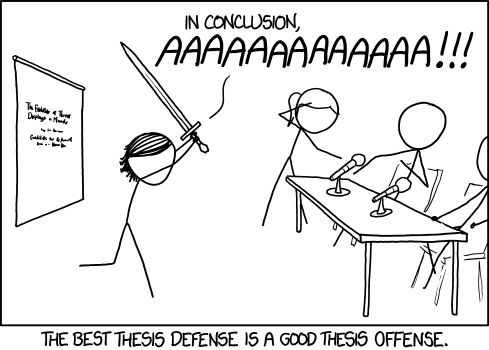Skimming
It’s really tempting to only read the good parts of your thesis.
When you’re done and you’re preparing for your viva, it’ll feel good to read the parts you’re most proud of. The chapter where you reach your amazing conclusions. The masterful description of your methodology. And then within those chapters, you’ll know that there are sections which are superb. You zero in on your favourite paragraphs.
You glance at the rest, because, yeah, you know what’s in your thesis, you wrote it after all. You are in a good position to know what is most important, most valuable, in your thesis. But it’s all necessary. Everything in your thesis has a reason or a purpose or a value, otherwise it wouldn’t be there.
So don’t skip. Don’t skim. Read it all. That could be hard, but read it all at least once after submission – if for no other reason that you can then be sure about what is there. You don’t have a false memory of a chapter or section.
Don’t skip the “bad” stuff because you need to know what’s there. Don’t skip the good stuff because everything can be reinforced and made better.

